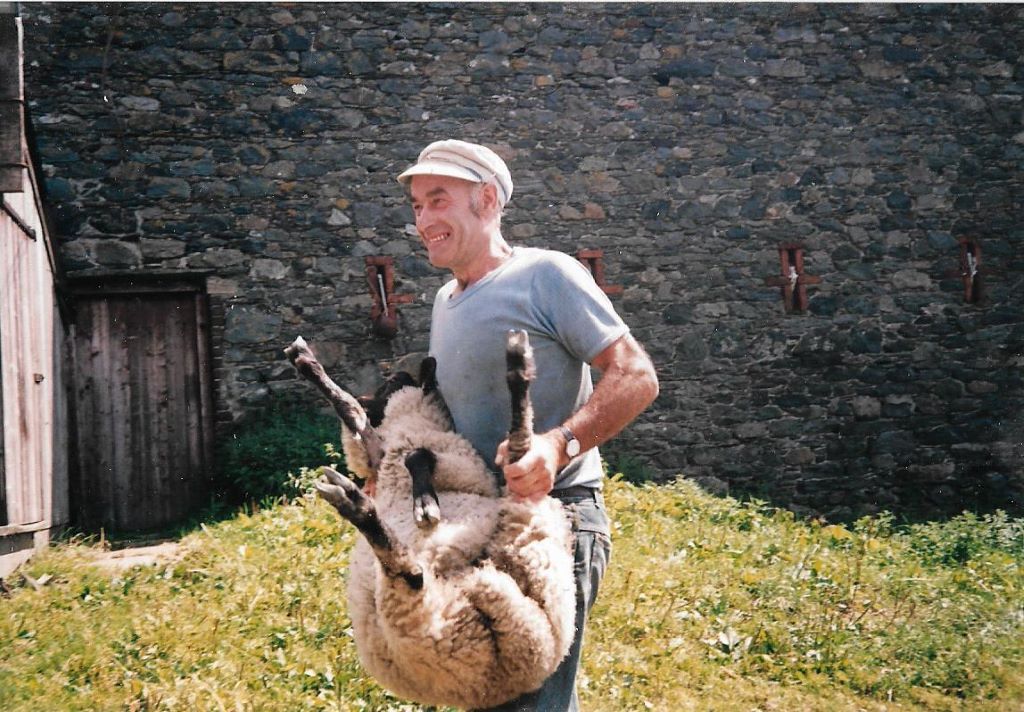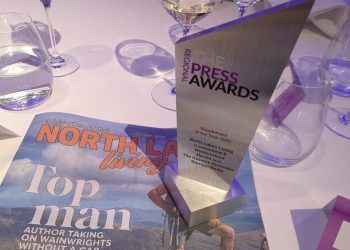
A lifelong Keswick resident who has worked on many of the town’s familiar features while employed in the construction industry and as an odd job man has died, aged 85.
Eric Bainbridge was born in 1938 at The Forge, which at the time was a mixture of workers’ houses owned by the Mirehouse Estate, for whom his father, Wilson, was a shepherd, and industrial buildings such as the former Keswick Electric Light Company site
Eric grew up between the River Greta and the then active Penrith to Keswick railway line. He recounted in Keith Richardson’s 2017 book, The Greta, that a favoured activity of local children on sensing the vibrations of an approaching steam train, was to see if they could run through the rail tunnel before the train arrived.
Thankfully having survived this activity, Eric left school to work for Braithwaite’s Garage in Portinscale, as a trainee mechanic. By luck, on entering National Service in the army, this experience enabled him to be assigned as a driver to the commanding officer, a “dream job” which took him across much of England and occasionally Europe.
Demobbed back to Keswick, Eric started work helping to construct the Portinscale bypass. It was a highly prized job, paying £28 a week. He then met Kathleen Harris, who was working for her sister Betty Graham, the sub-postmistress of Portinscale Post Office. Marriage and two sons, Mark and James, followed.
By the 1970s Eric had worked in both Force Crag and Castle Carrock mines.
The family home was considered for demolition when the Keswick by-pass was put forward, but it was saved and Eric took advantage by joining the construction site as a welder, thereby effectively working from home decades before the concept caught hold.
In 1982, after working on the Appleby bypass, the downturn in the construction industry resulted in a series of short term and seasonal employments.
These included several summers as a litter picker for the Lake District National Park Authority, where, armed with a magnet, he was able to separate discarded aluminium drinking cans from the less valuable steel cans, the proceeds of which enabled school uniforms and school shoes to be bought for his sons.
He also established a smallholding of hens, which local school children visited. On opening the nesting boxes, each child was presented with an egg, which, unbeknown to them, Eric had placed there earlier in the day.
The mid-1980s saw a change of direction, with Eric setting himself up as odd job man and gardener. At about the same time, he bought four lambs, rearing them to maturity and adding to them at local auctions, to the bemusement of the his family and slight horror of his now-elderly mother, who never understood what possessed him to follow in his father’s footsteps.
The flock grew until he needed to rent new fields at New Road, Portinscale.
After a near disaster when the sheep bolted and nearly ended up in Derwentwater, a sheepdog, Glen, was purchased. After Glen, Eric relied on any passing Portinscale resident or occasionally an unsuspecting tourist for herding assistance.
As Keswick changed, many of the properties became second homes and the old family run shops became the mountaineering outlets and cafes of today. Eric was a source of information for historians on the town and the families who lived there.
Occasional impersonations of notable characters and incidents from Keswick’s past would be provided.
Recently widowed, Eric still tried to remain as active as he could and was grateful for the lifelong friendships built up over the years. Funeral details are to follow.








